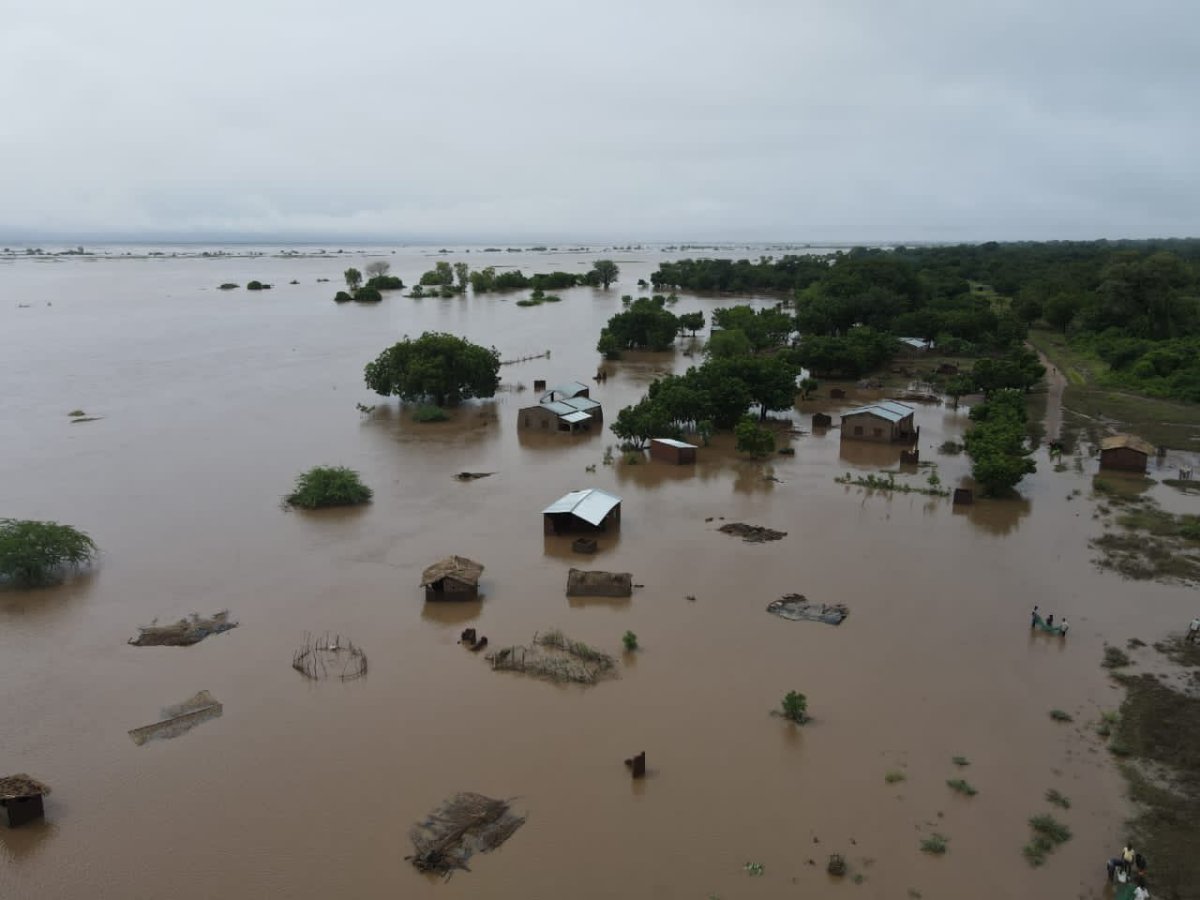Storm Freddy: make a donation
After passage of storm Freddy in Southeast Africa, the situation on the ground is worrisome. After 3 weeks of storms, there is already nearly 600 dead, some 400,000 displaced and enormous material damage. Moreover, about 100,000 hectares of farmland have been affected, threatening food shortages. That is why Belgian Red Cross-Flanders 100,000 euros from the emergency relief fund for humanitarian support. Want to do your part too? Make a donation below.
You can make a donation by paying into the account number BE53 0000 0000 5353 with the mention "Emergency Fund". From 40 euros your donation is tax deductible. The money collected will be used through the national associations for direct humanitarian aid to the people affected by the severe weather.
Emergency weather on top of cholera outbreak
The effects of storm Freddy are greatest in Malawi, but there is also a lot of human and material damage in Mozambique. Moreover, the situation is extra precarious because this crisis comes on top of two other crises: there were already heavy floods in southern Mozambique at the beginning of February, and there is a major cholera outbreak, particularly affecting Malawi. This new heavy rainfall from storm Freddy, resulting in new flooding, ensures that the cholera outbreak will continue to spread.
Initially, therefore, we are focusing our financial support on Malawi because that is where the need is greatest. With the 100,000 euros from the Emergency Relief Fund, we will focus on shelter and things to combat a cholera outbreak. Think for example of tents and tarpaulins for the displaced or hygienic products - such as chlorine tablets for water purification and soap - to prevent cholera infections.
Local support
Belgian Red Cross-Flanders has permanent staff in Mozambique, working with the local Red Cross there to coordinate emergency relief . In addition, two other experienced Belgian Red Cross-Flanders staff will leave for Malawi to help support humanitarian aid there as well.
Read the testimony of volunteer on site here
May update: Caroline Celis on her first month in Mozambique.
Caroline looks back on her departure
"The days before departure were hectic: I was trying to complete my work as much as possible, while also wanting to prepare for your mission as much as possible. Fortunately, the logistical support from Belgian Red Cross-Flanders is very good, so you don't lose time with tickets, visas, etc. The information I received beforehand was very limited: "1,000 packages of relief goods need to be distributed and they are on their way by truck from the capital". That was all I knew, so I listed some questions I wanted to ask upon my arrival. The local team in Mozambique had already done some field trips to find out which villages needed the most help and sent me pictures in advance so I could get a better idea."
Once on site
Once on the ground, she saw with her own eyes what the photos had shown: the mud walls of the houses had collapsed in lots of places, leaving the corrugated iron roof on the ground. People tried as best they could to draw their plan and build something of housing with what they had left. There was little material available, however, and we saw many people who had made some sort of tent with straw. Her help could clearly be used!
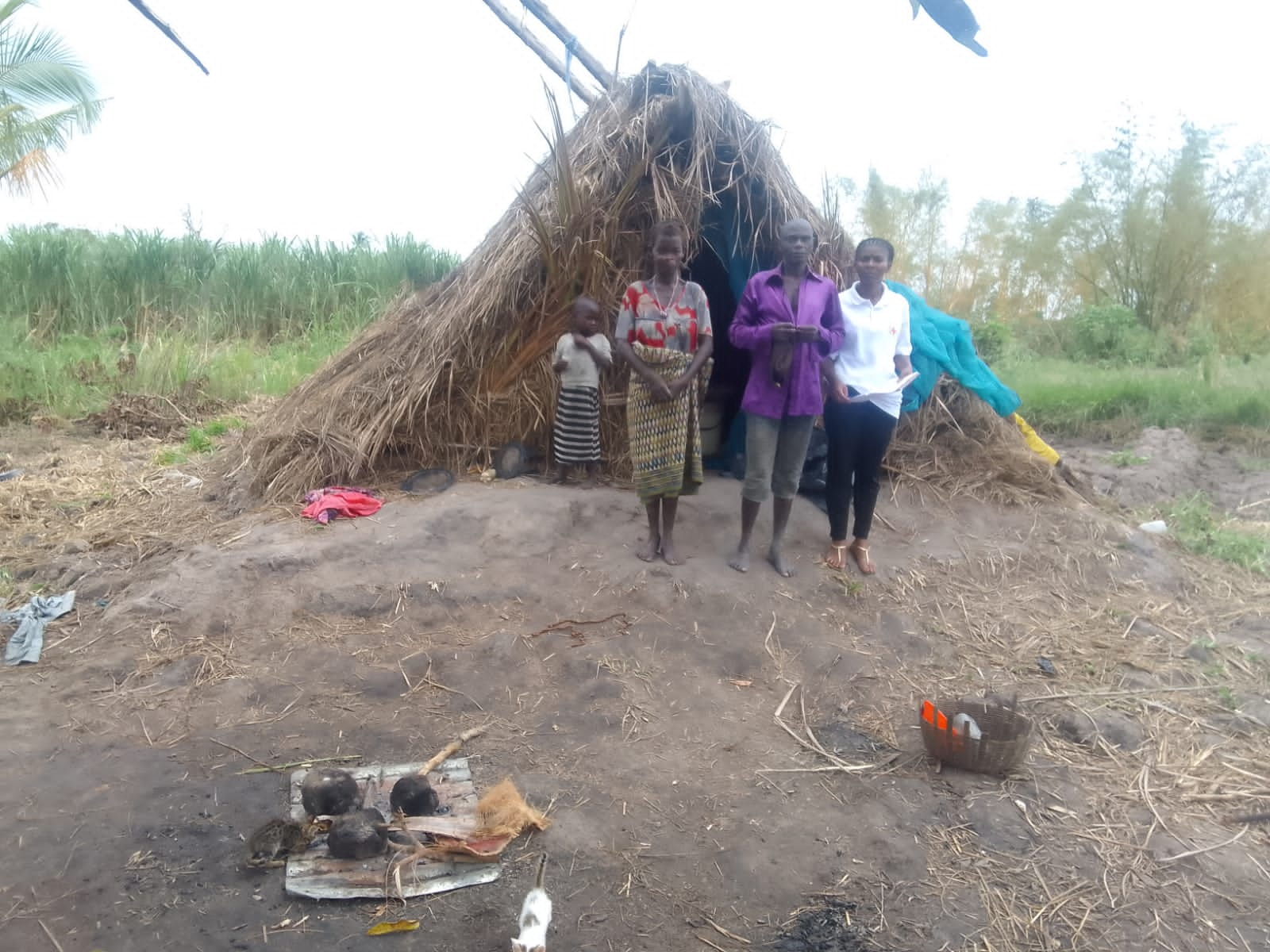
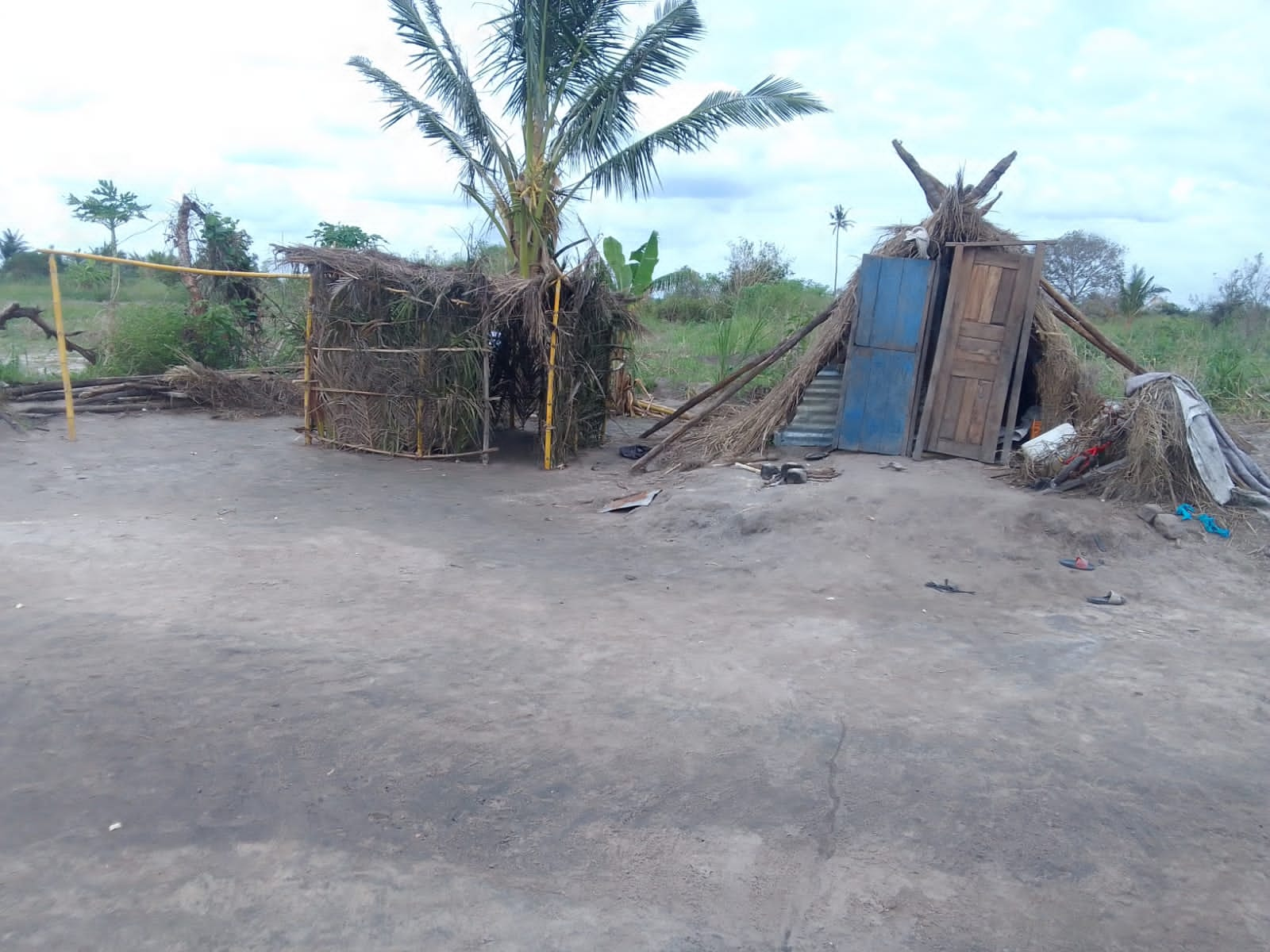
"Unfortunately, we often do not have sufficient resources and so we have to make choices, in consultation with local authorities and other NGOs, so that the maximum number of people can be helped. Another problem, especially after floods like this one, is accessibility to the affected areas. Two trucks were already stuck in the mud and here and there a fallen tree blocked the road, making passage difficult. We also had to reinforce a small bridge so that a ten-ton truck could cross it.
So we have to allow enough time for contingencies. And even then, despite good coordination with other organizations, it can still happen that village A receives something today and village B has to wait another 2 weeks.... Evidently it is not and the local authorities and Red Cross volunteers are very important to explain everything well to everyone.
Fortunately, our assistance and the distribution of relief supplies are having a positive impact, as you can see in the photos below!"

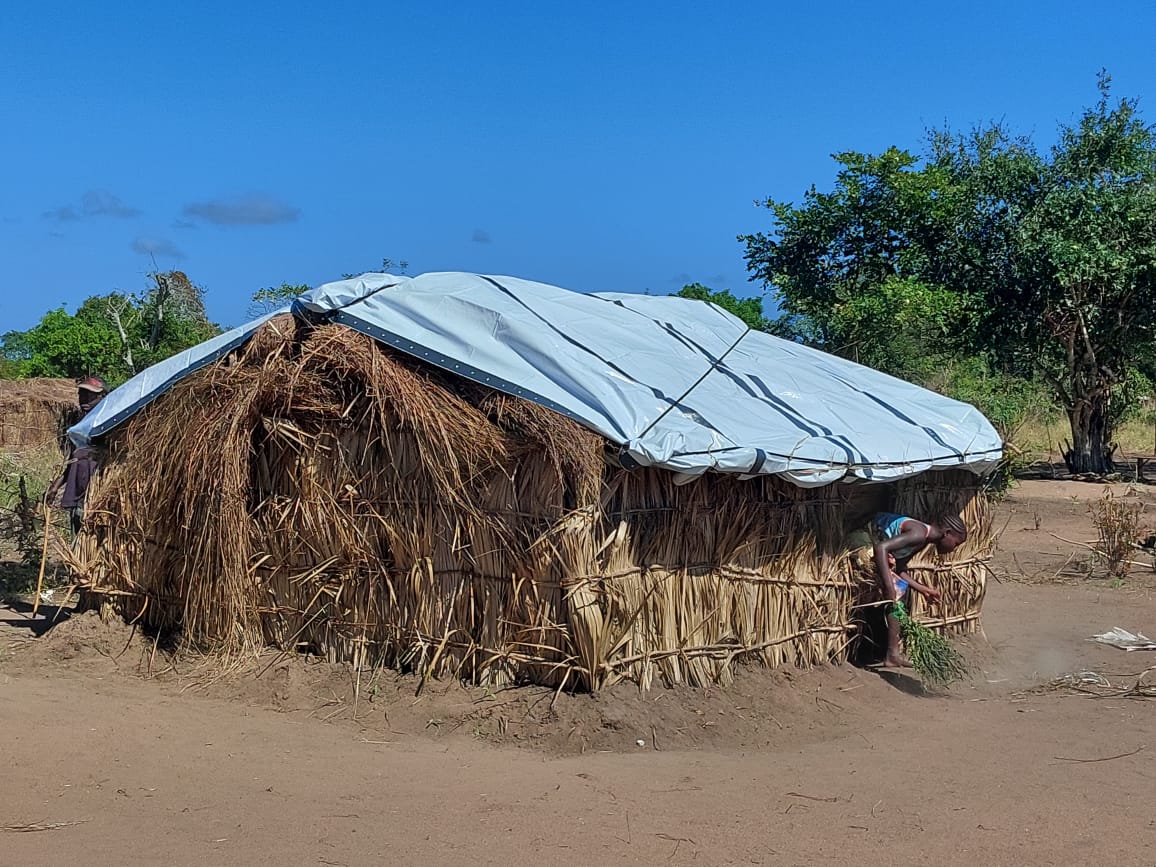
The importance of clean water
Shortly after the cyclone, cholera broke out on a large scale. In the city the water network was cut off and in the countryside many wells were flooded. The sea is nearby and the sandy soil makes it not obvious to build toilets in the villages, when the water table is very high. Moreover, the outskirts of the city are not connected to the water network and there too there is a lack of access to clean water and toilets.
Meanwhile, the situation is back under control, thanks in part to the vaccination campaign. Belgian Red Cross-Flanders has worked with other NGOs and the government to set up centers to treat people with cholera in the suburbs. In addition, the volunteers have tried very hard to make people aware of the importance of hand washing, the use of javel, the benefit of vaccination, etc. Meanwhile, the city's water system has been restarted, with public taps here and there where people can tap. The combination of all this ensures that the number of cholera infections has dropped. However, it is still confronting to see how much effort people here have to make to obtain clean water, something we take for granted.
Ending in beauty
Fortunately, not everything is doom and gloom. Caroline enjoys testifying about the resilience and humanity of the people in the village.
"It's impressive. People literally have nothing left after the hurricane and yet they want to give us "their guests," a good welcome with something to eat. It's not much: a little rice with some small fish. Very tasty, though. It's still a double whammy: you don't want people to eat their food, but at the same time it's rude to refuse.
I see it as a sign that society is still functioning: after the shock of the cyclone, they can bend back on social fabric and (hopefully) recover."
And also the sunset at the end of the long, hard day make her hope that all will be well.
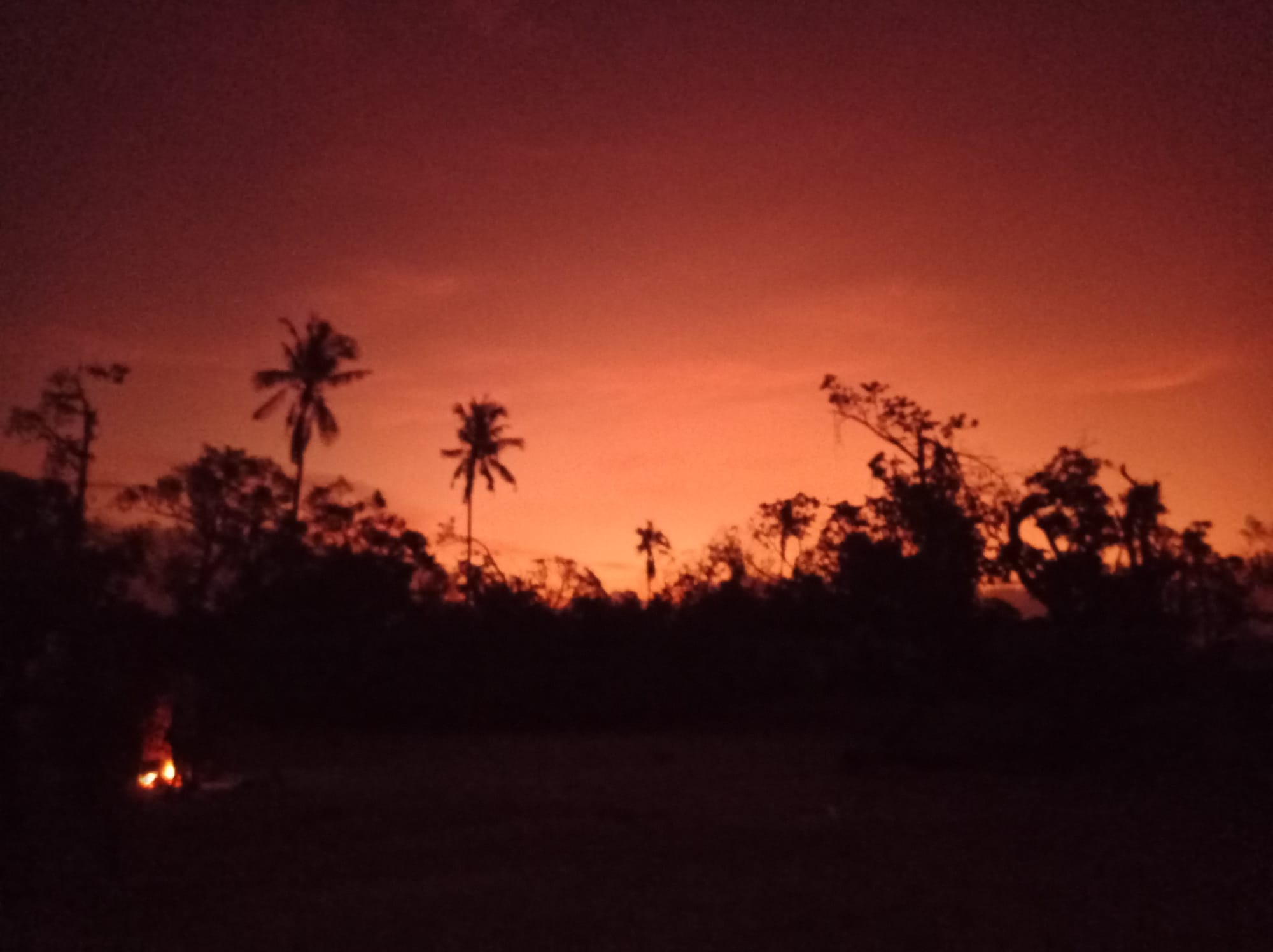
April 2023: to Mozambique to assist the local Red Cross in disaster relief after Cyclone Freddy
In early April, Caroline Celis, a volunteer from Belgian Red Cross-Flanders and former staff member, traveled to the Southeast African coastal country. The country has been hit by several severe weather events in recent decades, most notably cyclones Kenneth and Idai, which affected 2 million people in 2019 and triggered an international response in the country. The last cyclone caused heavy rains and massive flooding that affected an estimated 1.2 million people.
Caroline explained that she will help Red Cross teams in Quelimane distribute essential household goods to storm and flood victims:
"Quelimane, the fourth largest city, is still without electricity and running water. In the countryside surrounding the city, large areas are still under water. The local Red Cross is doing what it can, but is a bit overwhelmed by the scale of the disaster. In addition, cholera has broken out in and around the city. People and authorities are counting on Red Cross help."
Extensive humanitarian and Red Cross experiences.
Caroline is a seasoned humanitarian aid worker, with extensive experience both inside and outside the Red Cross movement. Her work with the Red Cross also led to deployments to Mozambique in the past. This is the fifth time she has visited the country.
"I have worked in the humanitarian sector for more than 20 years, both in development aid (long-term) and emergency relief (post-disaster relief) - and for several NGOs including Trias, Oxfam and, of course, the Red Cross. From 2005 to 2009 I was an operations officer for Belgian Red Cross-Flanders. Then I visited Mozambique for the first time and started learning Portuguese. There are not that many people in the world of humanitarian aid who speak Portuguese and for me it has become my fourth language. Good enough by all means to make myself understood and provide assistance (thanks to CLT Leuven and Angela Jesus)."
